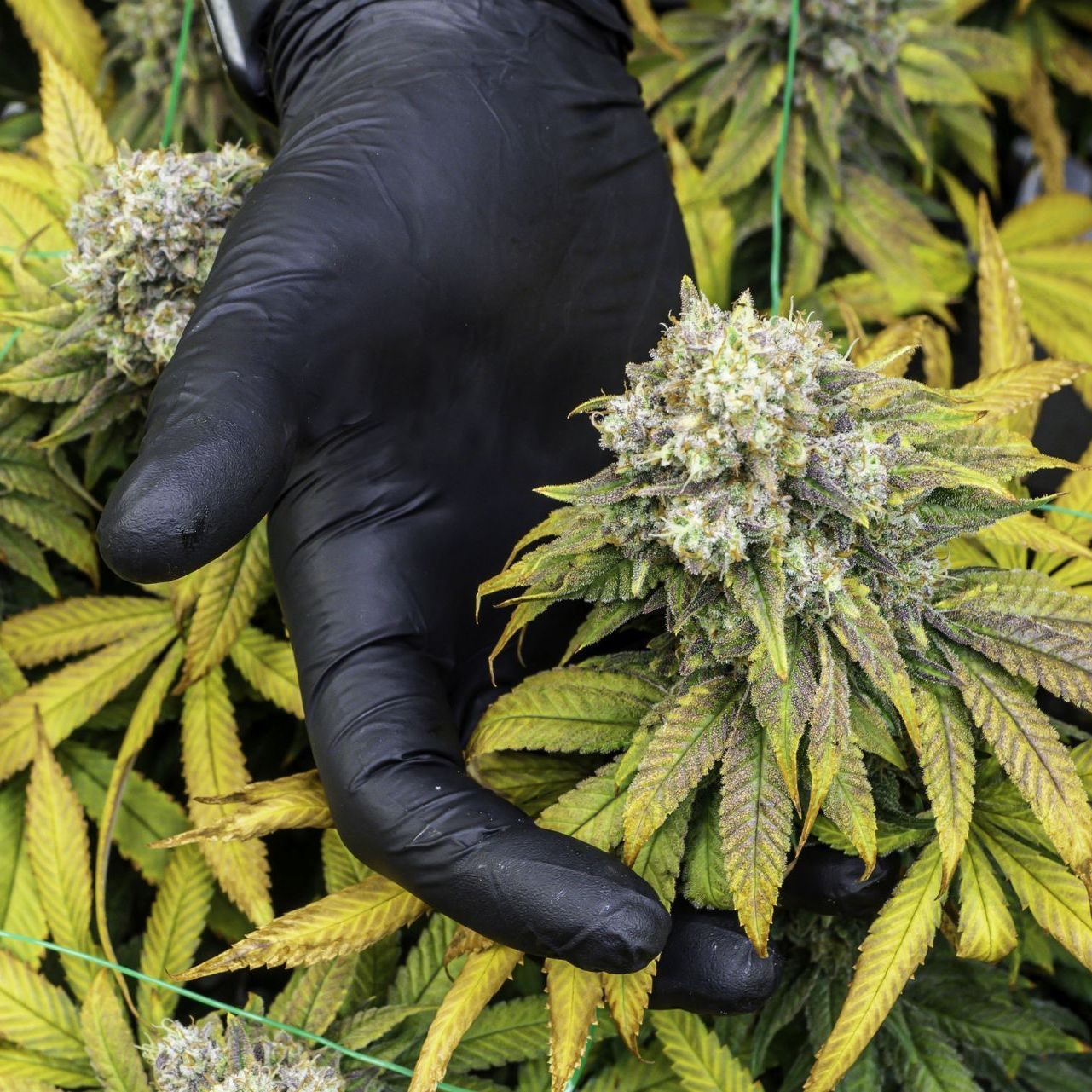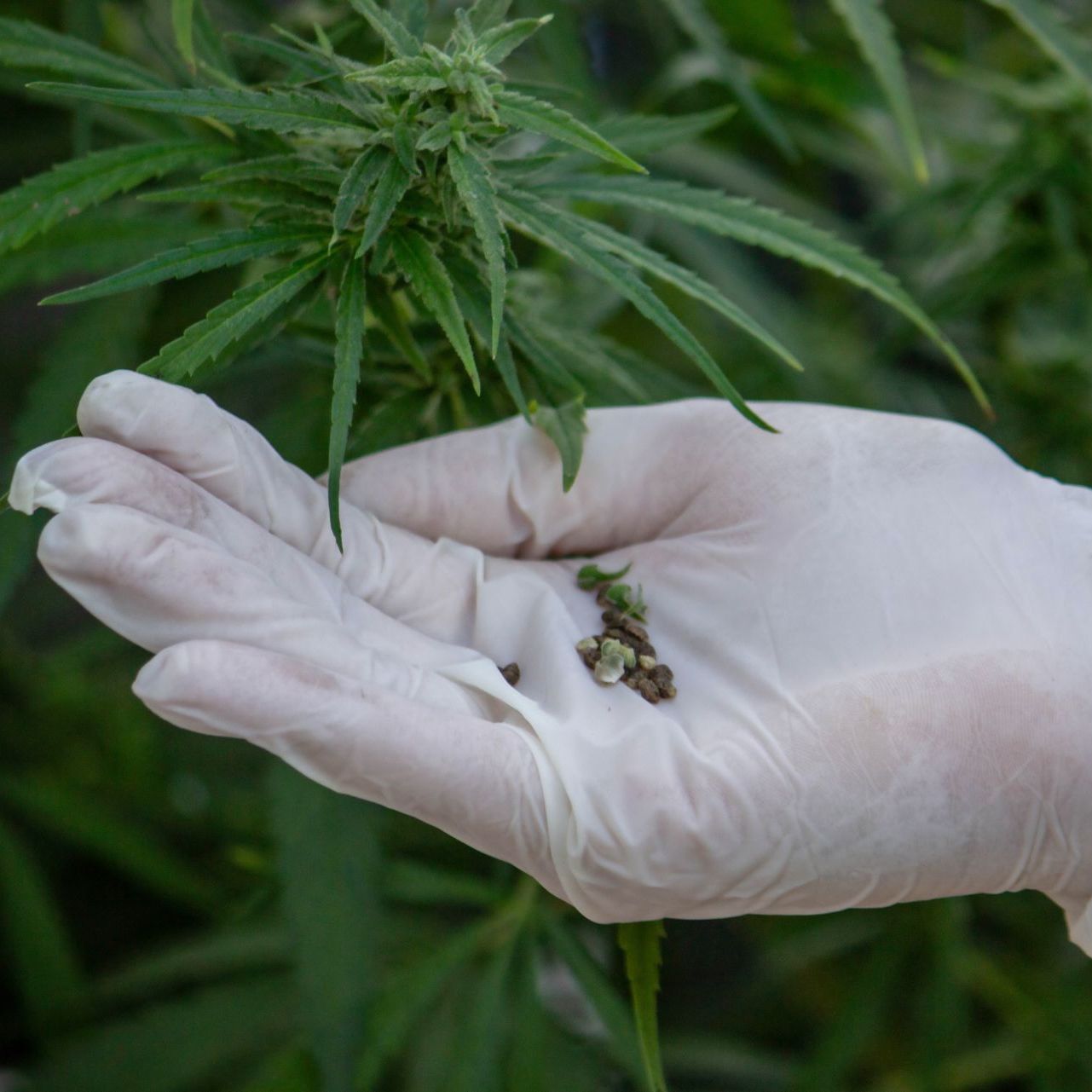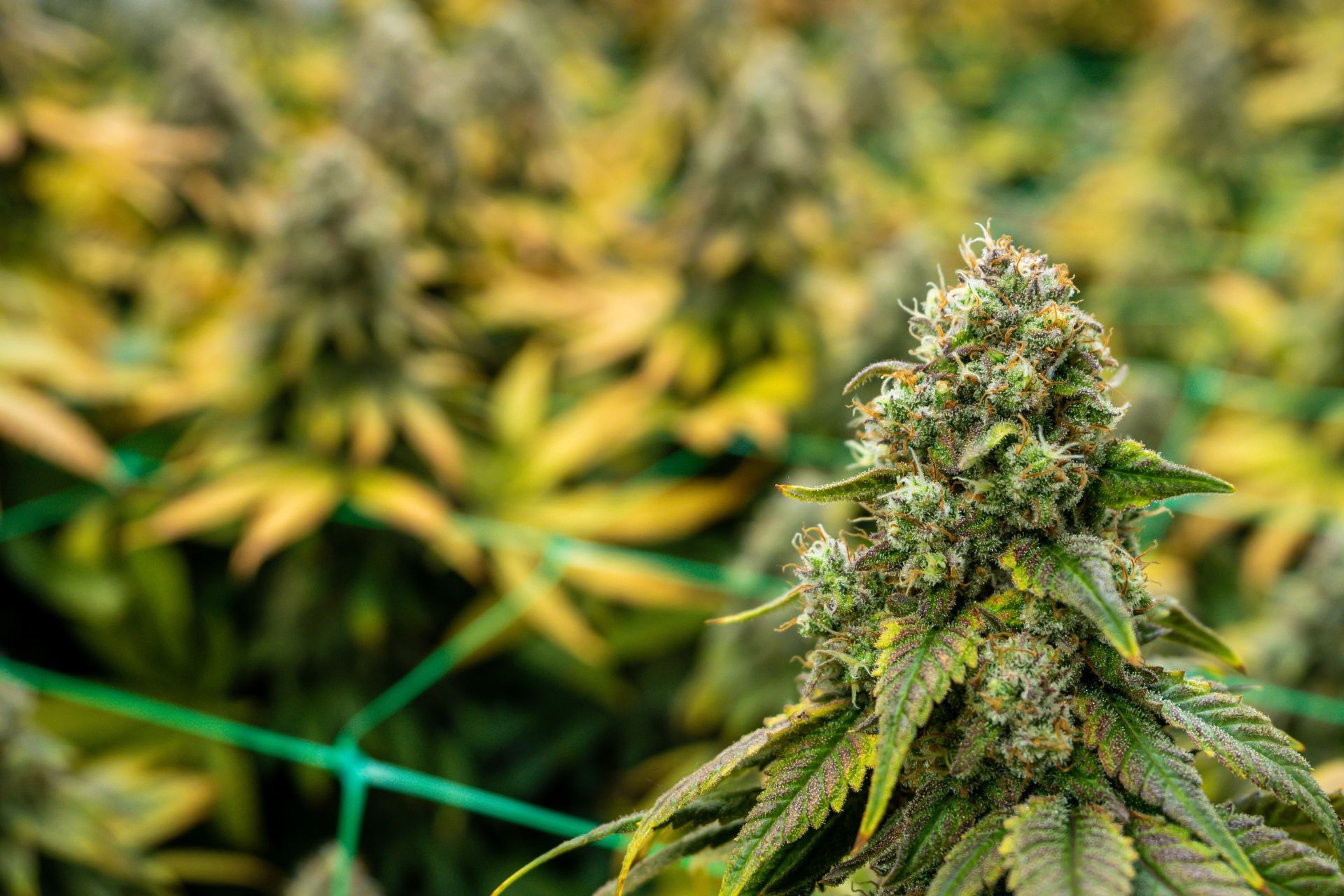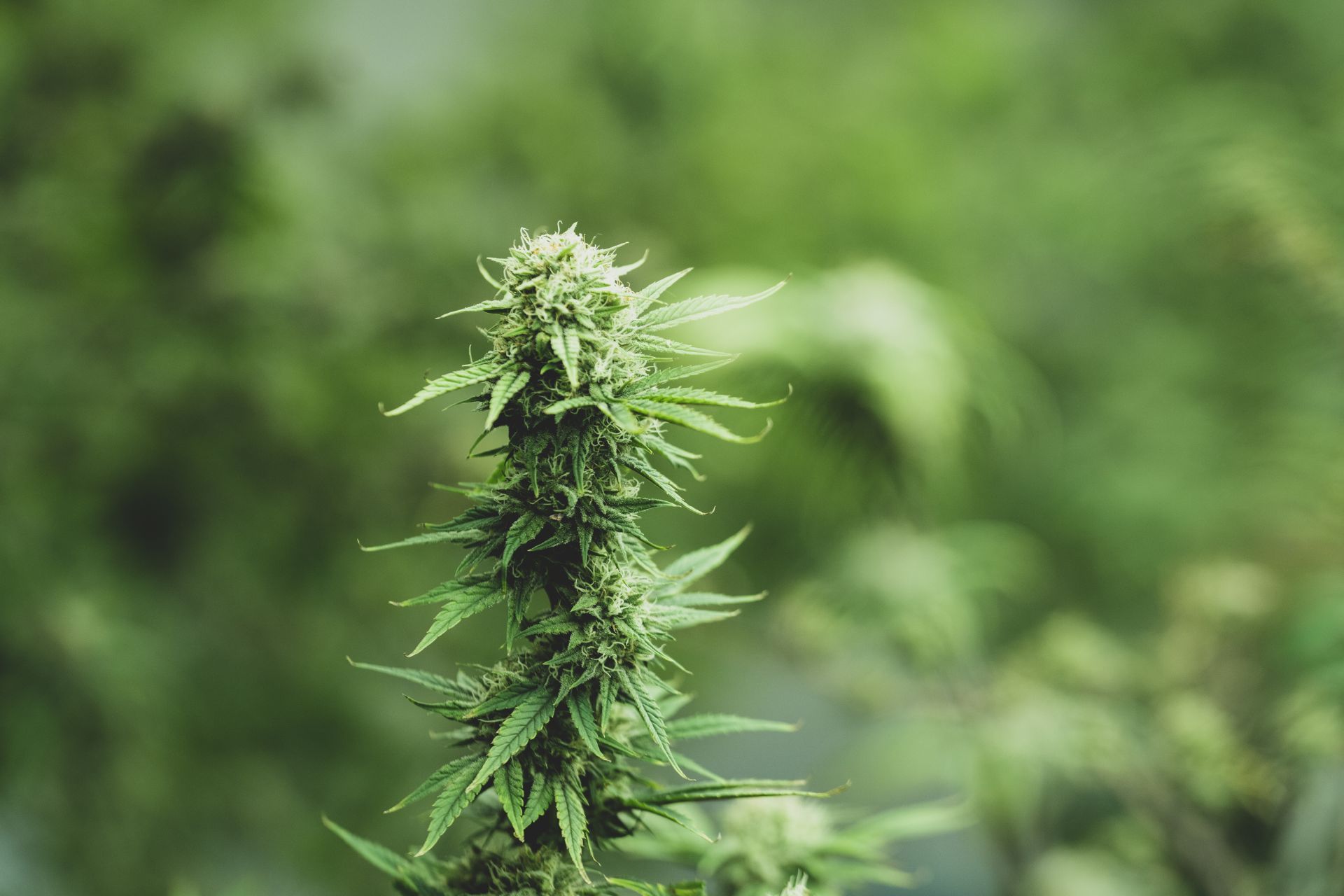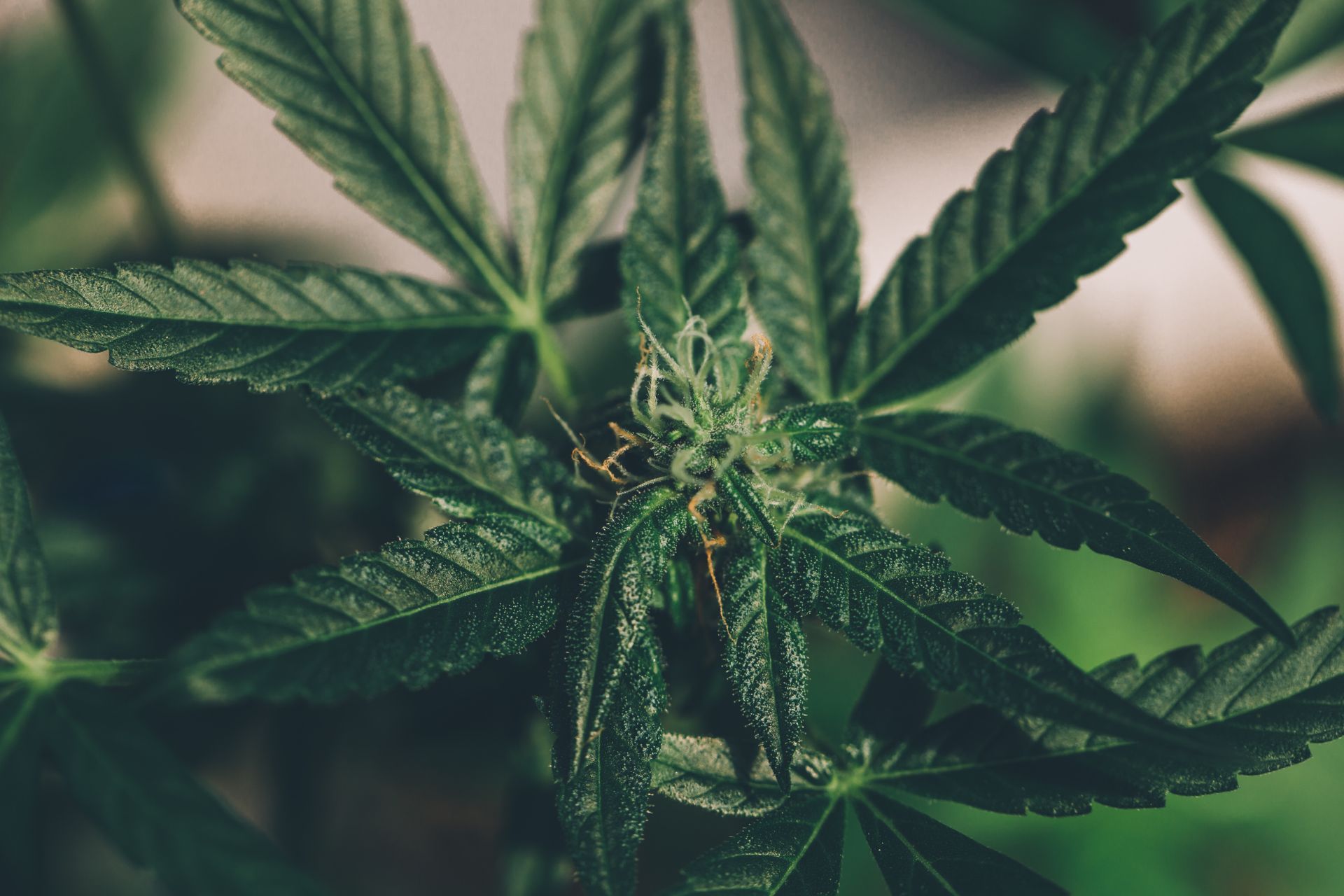Running a medical marijuana dispensary in North Dakota involves navigating a complex web of regulations, patient needs, and financial risks. With nearly 10,000 qualifying patients enrolled in the state's medical marijuana program as of 2023, the industry is steadily growing but still faces unique challenges, especially when it comes to insurance coverage and cost management. Understanding how insurance works for dispensaries and what factors influence premiums can make a significant difference in protecting your business and ensuring smooth operations.
Before diving into insurance specifics, it’s worth noting that North Dakota’s medical marijuana program is evolving. Starting July 2025, the program will expand to include low-dose THC edibles and update eligibility rules to improve patient access. These changes may impact dispensary operations and risk profiles, making insurance coverage an even more critical consideration. For more about these program updates, see the North Dakota medical marijuana program announcement.
Understanding Insurance Needs for North Dakota Dispensaries
Dispensaries face a range of risks—from property damage and theft to liability claims related to product use. Insurance policies tailored to cannabis businesses help mitigate these risks, but coverage options can be limited or costly due to the federal status of marijuana. In North Dakota, dispensaries must carefully evaluate what types of insurance they need to stay protected.
General liability insurance is a foundational policy. It covers claims arising from bodily injury or property damage caused by your business operations. For a dispensary, this could mean a customer slipping on wet floors or adverse reactions to products sold. Given that 66% of North Dakota’s medical marijuana sales in 2023 were dried leaves and flowers, handling and storage safety is paramount to reduce liability exposure. Additionally, dispensaries should consider adding product liability insurance, which specifically covers claims related to the safety and efficacy of the products sold. This is particularly important as consumers become more discerning and informed about the products they purchase, and any negative experiences could lead to costly lawsuits.
Property insurance is another essential coverage, protecting your dispensary’s physical assets such as inventory, equipment, and premises. The cannabis industry’s high-value inventory makes this especially important. Theft and fire risks are a constant concern, so having robust property insurance can prevent devastating financial losses. Furthermore, dispensaries should also look into business interruption insurance, which can provide coverage for lost income during periods when the business is unable to operate due to unforeseen events, such as natural disasters or significant equipment failure. This type of coverage can be a lifesaver for businesses that rely heavily on consistent sales.
Workers’ compensation insurance is legally required for dispensaries with employees. It covers medical expenses and lost wages if workers are injured on the job. As the North Dakota medical marijuana program grows, so does the workforce, increasing the importance of this coverage. Moreover, dispensaries should also implement comprehensive training programs for employees to ensure safety protocols are adhered to, which can help reduce the likelihood of workplace accidents and subsequently lower insurance premiums over time.
Because cannabis remains federally illegal, many traditional insurers exclude marijuana-related businesses from coverage. This creates a niche market where specialized insurers offer tailored policies, often at higher premiums. Dispensaries should work with brokers experienced in cannabis insurance to find the best fit. It's also beneficial for dispensaries to stay informed about legislative changes that could affect insurance availability and costs. As the cannabis industry continues to evolve, so too will the insurance landscape, and being proactive can help dispensaries navigate these complexities more effectively.

Article By: Deb Sculli
Cannabis Insurance Specialist
TruePath Insurance is fully licensed and authorized to provide comprehensive insurance solutions across multiple states.
We proudly serve individuals and businesses nationwide, offering access to trusted regional and national carriers. Our goal is to help clients find reliable, affordable coverage that aligns with their goals—whether for personal protection, business stability, or long-term financial security.
Cost Factors Influencing Dispensary Insurance Premiums
Insurance premiums for dispensaries in North Dakota vary widely based on several factors. Location, size, sales volume, security measures, and claims history all play a role. For example, a dispensary in a high-crime area with minimal security will face higher premiums than one with state-of-the-art surveillance and alarm systems.
North Dakota’s medical marijuana market was valued at over $21.6 million in dispensary sales during 2023, with projections reaching $25 million in 2024. Higher sales volumes typically mean higher inventory values and greater risk exposure, which insurers factor into premium calculations. Dispensaries with larger operations should expect to pay more for comprehensive coverage.
Security is a major cost driver. Insurers often require stringent security protocols, including video surveillance, controlled access, and alarm systems. Investing in these measures can reduce premiums by lowering the risk of theft and vandalism. Additionally, dispensaries that implement employee training programs on security best practices can further mitigate risks, demonstrating to insurers that they are proactive in safeguarding their operations.
Another consideration is the evolving regulatory environment. The upcoming inclusion of low-dose THC edibles and changes to patient eligibility may introduce new liability risks or operational complexities. Insurers may adjust pricing to reflect these shifts, so dispensaries should stay informed and communicate changes promptly to their insurance providers. Furthermore, as regulations become more complex, dispensaries may need to invest in compliance consulting services, which can add to operational costs but ultimately protect against potential legal liabilities.
Finally, the broader health insurance landscape in North Dakota indirectly affects dispensary insurance costs. With the state reporting the highest private health insurance coverage rate at 78.4% in 2022, many patients rely on private insurance for their healthcare needs. However, medical marijuana is not covered by health insurers in North Dakota, as noted by Greg Bury of Medica. This means patients pay out of pocket, which can influence dispensary sales patterns and risk profiles. The financial burden on patients may lead to fluctuations in demand, which insurers consider when assessing risk. Moreover, as the stigma surrounding medical marijuana continues to diminish, dispensaries may see an increase in patient registrations, potentially impacting their insurance premiums as sales volumes rise.

Insurance Challenges Specific to North Dakota Dispensaries
One key challenge is the lack of health insurance coverage for medical marijuana. Patients must pay for their cannabis products themselves, which can limit demand or shift purchasing behaviors. This dynamic affects dispensary revenue stability and, by extension, insurance risk assessments. Without insurance coverage, patients may opt for less expensive alternatives or forgo treatment altogether, which can lead to a decrease in overall patient engagement with dispensaries. This situation creates a ripple effect, where reduced patient numbers can lead to lower sales and, consequently, a diminished ability for dispensaries to invest in quality products or customer service enhancements.
Additionally, North Dakota is facing potential increases in health insurance premiums for individuals purchasing their own coverage. If federal Affordable Care Act subsidies are not renewed, premiums could rise significantly in 2026. Tim Blasl, president of the North Dakota Hospital Association, warns that this could cause many to lose coverage. While this primarily impacts healthcare, it also indirectly affects dispensaries by influencing patient affordability and access to medical marijuana. As patients grapple with rising costs, dispensaries may need to consider implementing loyalty programs or discounts to retain their customer base. Furthermore, the economic strain on individuals could lead to a greater demand for lower-cost cannabis options, which may not always align with the quality standards dispensaries strive to maintain.
Another hurdle is the federal legal status of cannabis. Because marijuana remains illegal at the federal level, many insurers exclude cannabis businesses or charge higher rates. This limits options for dispensaries and requires working with specialized insurers who understand the unique risks involved. The lack of comprehensive insurance options can leave dispensaries vulnerable to unforeseen events, such as theft or natural disasters, which could have devastating financial repercussions. As a result, dispensaries may find themselves investing in additional security measures or contingency plans, further straining their operational budgets. Moreover, the uncertainty surrounding federal legalization continues to create an unstable environment for dispensaries, making it challenging to plan for the future or attract investment, which is crucial for growth in this evolving market.
Strategies to Manage Insurance Costs and Risks
Dispensaries can take proactive steps to control insurance costs while maintaining adequate protection. First, investing in comprehensive security systems is critical. Surveillance cameras, alarm systems, and secure storage reduce the likelihood of theft and vandalism, which insurers reward with lower premiums. Additionally, integrating advanced technology such as motion detectors and smart locks can further enhance security measures, providing real-time alerts and remote monitoring capabilities. This not only deters criminal activity but also demonstrates to insurers that the dispensary is committed to safeguarding its assets.
Maintaining meticulous records and compliance with state regulations also helps. Insurers look favorably on businesses that demonstrate strong operational controls and adherence to laws, as it reduces the chance of claims. Regularly conducting internal audits and training staff on compliance protocols can create a culture of accountability and awareness. Furthermore, establishing a robust risk management plan that includes procedures for handling potential incidents can significantly mitigate risks and enhance the dispensary's profile in the eyes of insurers.
Another approach is to bundle insurance policies where possible. Some insurers offer package deals combining general liability, property, and workers’ compensation coverage. Bundling can lead to cost savings and simplify management. It’s also beneficial to regularly review these bundled policies to ensure they still meet the evolving needs of the business, especially as the dispensary grows or diversifies its product offerings. Engaging in annual policy reviews can uncover opportunities for additional savings or necessary adjustments in coverage.
Working with an insurance broker who specializes in cannabis businesses is invaluable. They can navigate the limited market, negotiate better terms, and ensure coverage aligns with the dispensary’s unique needs. A knowledgeable broker can also provide insights into emerging trends in the cannabis industry, helping dispensaries anticipate potential risks and adjust their insurance strategies accordingly. This proactive approach not only aids in securing favorable rates but also ensures that dispensaries are adequately protected against the unique challenges they face in a rapidly evolving regulatory landscape.

What Dispensary Owners Should Know About Coverage Limits and Exclusions
Understanding policy limits and exclusions is crucial. Many cannabis insurance policies have caps on coverage amounts and exclude certain risks, such as product recalls or crop failures. Dispensaries should carefully review their policies to identify gaps and consider supplemental coverage if needed.
Product liability is a particularly important area. Since medical marijuana products directly affect consumers’ health, claims related to adverse reactions or contamination can be costly. Not all policies cover product liability, so dispensaries must verify this protection.
Additionally, some policies exclude losses related to federal enforcement actions. While rare, this remains a risk due to marijuana’s legal status. Dispensaries should be aware of these limitations and plan accordingly.
Looking Ahead: The Future of Dispensary Insurance in North Dakota
As North Dakota’s medical marijuana program expands and matures, insurance products will likely evolve too. The introduction of new product forms like edibles and changes to patient eligibility may prompt insurers to develop more tailored policies. Staying informed about these developments is key for dispensaries.
The market’s growth, from $21.6 million in sales in 2023 to a forecasted $25 million in 2024, signals increasing demand and operational scale. This growth will attract more insurers to the space, potentially increasing competition and improving coverage options.
Meanwhile, health insurance challenges in the state underscore the importance of dispensaries maintaining strong financial and operational resilience. For more details on North Dakota’s healthcare reform and insurance premium outlook, visit the
North Dakota Insurance Department’s health care reform page.
Frequently Asked Questions
Q: Is medical marijuana covered by health insurance in North Dakota?
A: No. Health insurers in North Dakota do not cover medical marijuana, so patients pay out of pocket for their cannabis products.
Q: What types of insurance should a dispensary in North Dakota have?
A: Essential policies include general liability, property insurance, and workers’ compensation if the dispensary has employees.
Q: Why are dispensary insurance premiums higher than other businesses?
A: Cannabis remains federally illegal, which limits insurer options and increases risk perceptions, leading to higher premiums.
Q: Can dispensaries reduce insurance costs?
A: Yes. Investing in strong security systems, maintaining compliance, and working with specialized brokers can help lower premiums.
Q: Are there coverage gaps dispensaries should watch for?
A: Product liability and federal enforcement exclusions are common gaps. Dispensaries should review policies carefully to identify and address these.
Q: How will changes to North Dakota’s medical marijuana program affect dispensaries?
A: New product forms like low-dose edibles and eligibility changes may increase operational complexity and risk, influencing insurance needs and costs.
Q: What impact could rising health insurance premiums have on dispensaries?
A: Higher premiums may reduce patient affordability for medical marijuana, potentially affecting dispensary sales and financial stability.
Coverage Comparison Table: Key Insurance Policies for North Dakota Dispensaries
| Insurance Type | What It Covers | Typical Coverage Limits | Common Exclusions | Why It Matters |
|---|---|---|---|---|
| General Liability | Bodily injury, property damage, legal defense | $1 million per occurrence | Intentional acts, product liability (sometimes) | Protects against customer injury claims |
| Property Insurance | Building, inventory, equipment loss/damage | Varies by asset value | Flood, earthquake, federal enforcement actions | Safeguards physical assets and inventory |
| Workers’ Compensation | Employee injury medical and wage benefits | State-mandated minimums | Self-inflicted injuries, intoxication | Required for employee protection and compliance |
| Product Liability (Optional) | Claims from product defects or adverse reactions | $1 million or more | Misuse of product, illegal use | Critical for protecting against consumer claims |
About The Author: Deb Sculli
I’m Deb, a Cannabis Insurance Specialist focused on helping dispensaries, cultivators, and cannabis-related businesses find the right protection. With a strong understanding of the industry’s regulations and risks, I work hard to simplify the insurance process—so my clients stay compliant and confidently safeguard their operations and investments.
Contact Us
WHO WE HELP
Serving the Cannabis Supply Chain
We cover licensed operators at every stage.
OUR BLOGS
Resources for Cannabis Business Owners
Stay informed and protected with our latest posts.
COMMON QUESTIONS
Cannabis Insurance Made Clear
Answers to the questions we hear most from cannabis business owners.
What types of insurance do you offer for cannabis businesses?
We offer commercial property, general liability, product liability, crop insurance, workers’ compensation, and cyber liability tailored to cannabis operations. These policies address the most common risks, such as crop loss, product claims, and facility damage.
Our agents will help you match the right coverage to your business type and scale, whether you're a dispensary, grower, processor, or distributor.
Why is specialized cannabis insurance necessary?
Standard business policies often exclude cannabis-related activities, which leaves significant exposure gaps. Cannabis-specific insurance covers unique industry risks like product recalls, crop theft, and regulatory compliance.
Having the right policy also satisfies licensing, leasing, and vendor requirements, allowing your business to operate legally and securely.
How does your agency ensure compliance with state regulations?
Many states require proof of specific insurance types before issuing or renewing cannabis licenses. We stay up-to-date on regulatory changes and ensure your policies meet state and local mandates.
That means you avoid surprises during audits or inspections and maintain good standing with licensing authorities.
How fast can I get a quote and bind coverage?
Request a quote and you’ll typically receive a custom proposal within 24 hours. Once you review and accept it, coverage can often be bound the same day, so your business isn’t left exposed.
We streamline documentation and communication to make setup fast and clear—no confusing forms or delays.
Do you support multi-state cannabis businesses?
Yes. We are licensed to operate in 36 states, including major cannabis markets. Whether you’re operating in one state or across several, we can design policies that address your regulatory and risk needs.
As you expand, our team adjusts your coverage accordingly—keeping your protection consistent across state lines.
What should I consider when selecting cannabis insurance?
Begin by identifying your key exposures—crop value, product inventory, employee safety, or cyber data. From there, choose coverage that aligns with these risks instead of opting for a basic or low-cost solution.
Also, look for a provider with cannabis expertise and responsive claims support—this experience helps during actual loss events.
Contact Us
Phone
Address


